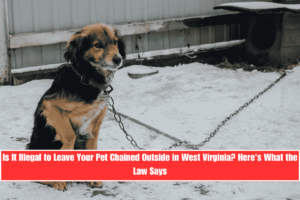Car sleeping—also called car camping—is a popular and affordable way to travel across Alaska, especially for those who want to experience the state’s stunning wilderness without spending too much on hotels. The good news is that sleeping in your car is generally legal in Alaska, but there are a few things you need to keep in mind to stay safe and avoid trouble.
Is It Legal to Sleep in Your Car in Alaska?
There are no statewide laws in Alaska that ban sleeping in your vehicle. This means you can legally sleep in your car, especially if you’re parked safely and not causing any disturbance. However, local rules and signs can still apply, depending on where you are.
Where Is It Legal to Sleep in Your Car?
Highways and Rest Areas
Yes, it’s legal to pull off the road and sleep in your car in many highway rest areas across Alaska. Just make sure you’re completely off the main road, not blocking traffic, and not in a restricted area.
Public Lands
On Bureau of Land Management (BLM) lands, you can camp (or sleep in your car) for up to 14 days within a 28-day period. These areas are often scenic and quiet, making them great spots for overnight stays.
National Parks
In Denali National Park and other protected areas, you must camp only in designated campgrounds. Sleeping in your car alongside the road or in pullouts is not allowed in these places.
Best Practices for Sleeping in Your Car
To make your experience safe and legal, here are a few simple tips:
- Look for signs: Always check for “No Overnight Parking” or similar notices.
- Avoid private property: Never park on someone’s land unless you have their permission.
- Use well-lit or safe areas: Choose rest stops, BLM land, or free public campgrounds when possible.
- Prepare for the weather: Alaska can get cold even in summer. Carry warm bedding, water, and emergency supplies.
- Keep it clean: Respect nature and local rules by cleaning up after yourself.
Free Camping Spots in Alaska
Looking for free places to camp in your car? Try these beautiful locations:
- Salmon Lake (north of Nome)
- Lower Skilak Lake Campground (Kenai Peninsula)
- Lake Lorraine Campground (near Anchorage)
- Galbraith Lake Campground (North Slope Borough)
These spots are ideal for budget travelers, offering natural beauty without the cost.
Costs and Reservations
While many car camping spots in Alaska are free, some may charge fees ranging from $15 to $100 per night, depending on amenities and popularity. In high-demand areas, especially during summer, it’s a good idea to book in advance.
Car sleeping in Alaska is legal, affordable, and an amazing way to explore the state. Just remember to follow local laws, avoid restricted areas, and respect nature. Whether you’re chasing the Northern Lights or driving along scenic highways, sleeping in your car lets you stay close to the adventure—without breaking the bank.
FAQ – Car Sleeping in Alaska
Can I legally sleep in my car in Alaska?
Yes. There are no statewide laws against sleeping in your car, but be aware of local restrictions and always park safely off the road.
Where is the best place to sleep in your car in Alaska?
BLM land, rest areas, and free public campgrounds are your best bet. Avoid private property unless you have permission.
Can I sleep in my car in national parks like Denali?
Only in designated campgrounds. Sleeping in pullouts or on the roadside is not allowed in Denali National Park.
Do I need to pay to car camp in Alaska?
Many places are free, but some public lands may charge $15–$100/night, depending on facilities. Reservations are recommended in popular areas.
Is it safe to sleep in your car in Alaska?
Generally yes, especially in designated camping zones. Stay alert, avoid isolated or poorly lit areas, and prepare for cold weather conditions.


















Leave a Reply